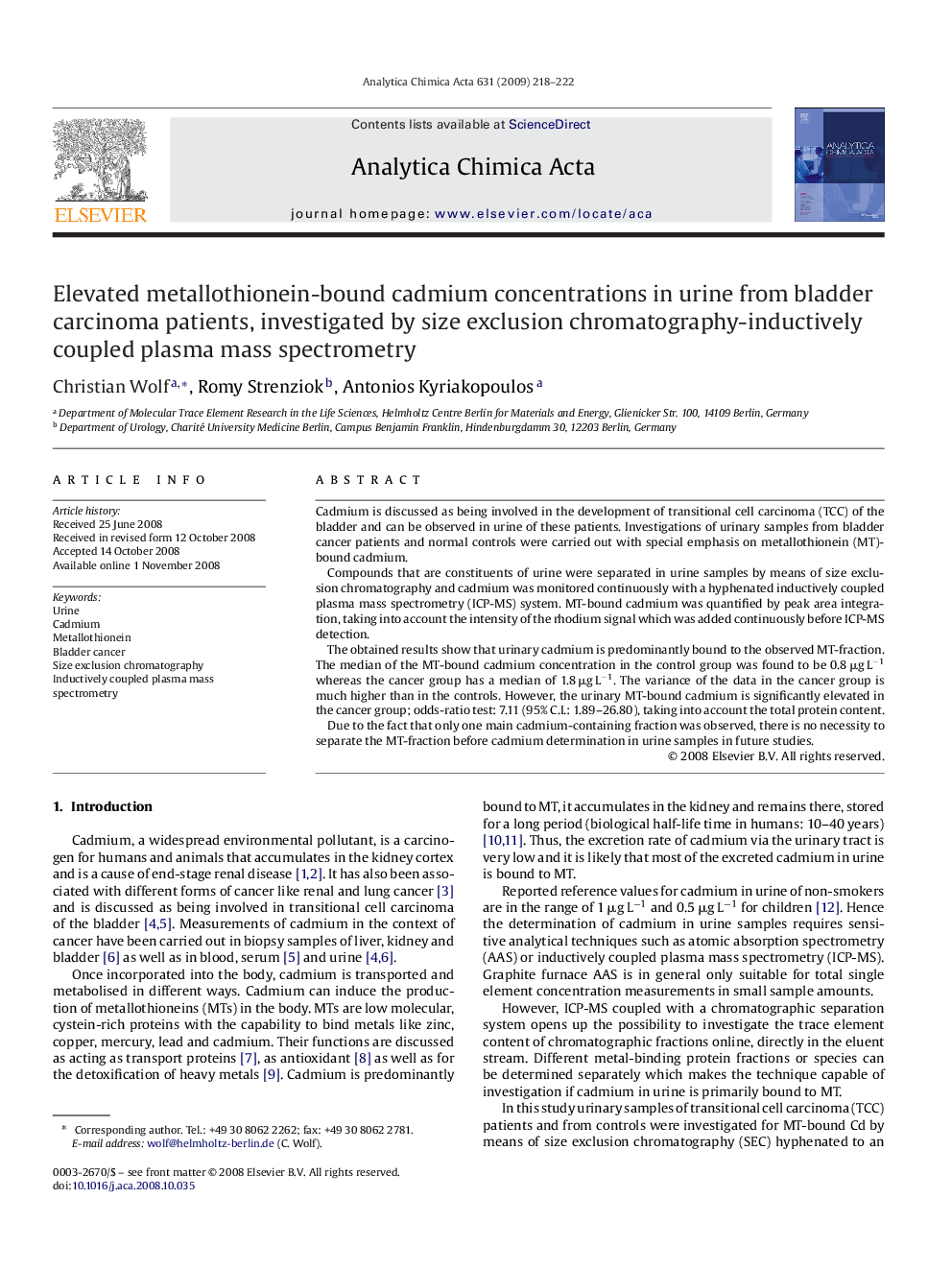| Article ID | Journal | Published Year | Pages | File Type |
|---|---|---|---|---|
| 1168524 | Analytica Chimica Acta | 2009 | 5 Pages |
Cadmium is discussed as being involved in the development of transitional cell carcinoma (TCC) of the bladder and can be observed in urine of these patients. Investigations of urinary samples from bladder cancer patients and normal controls were carried out with special emphasis on metallothionein (MT)-bound cadmium.Compounds that are constituents of urine were separated in urine samples by means of size exclusion chromatography and cadmium was monitored continuously with a hyphenated inductively coupled plasma mass spectrometry (ICP-MS) system. MT-bound cadmium was quantified by peak area integration, taking into account the intensity of the rhodium signal which was added continuously before ICP-MS detection.The obtained results show that urinary cadmium is predominantly bound to the observed MT-fraction. The median of the MT-bound cadmium concentration in the control group was found to be 0.8 μg L−1 whereas the cancer group has a median of 1.8 μg L−1. The variance of the data in the cancer group is much higher than in the controls. However, the urinary MT-bound cadmium is significantly elevated in the cancer group; odds-ratio test: 7.11 (95% C.I.: 1.89–26.80), taking into account the total protein content.Due to the fact that only one main cadmium-containing fraction was observed, there is no necessity to separate the MT-fraction before cadmium determination in urine samples in future studies.
